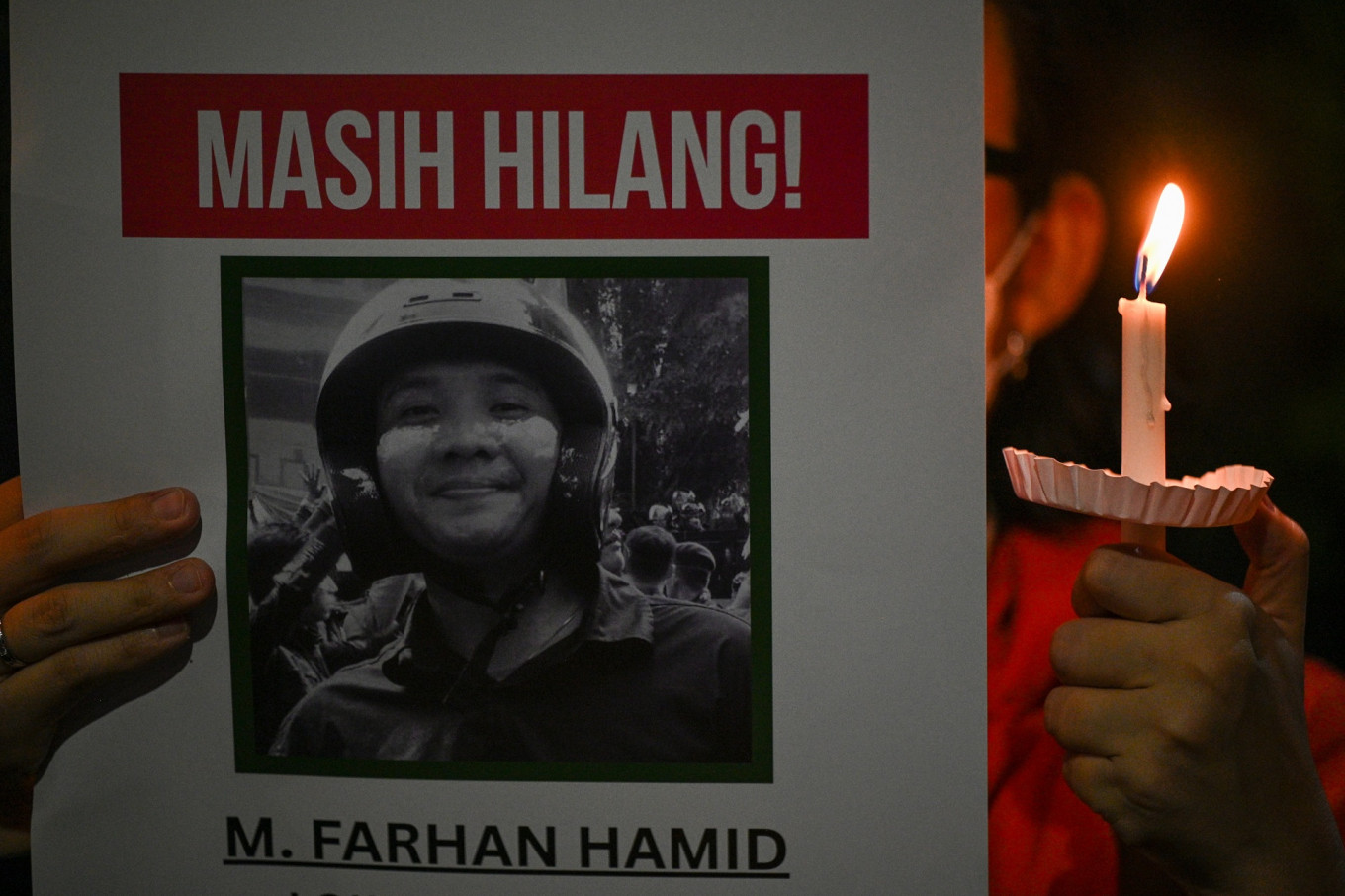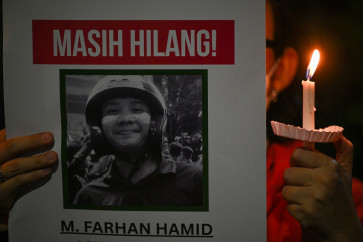Popular Reads
Top Results
Can't find what you're looking for?
View all search resultsPopular Reads
Top Results
Can't find what you're looking for?
View all search resultsDemocracy on trial: Why we appeal to the United Nations
The state has resorted to intimidation, arbitrary arrests and systemic silencing of dissent.
Change text size
Gift Premium Articles
to Anyone
 An activist holds a poster showing Muhammad Farhan Hamid, a protester who went missing during the string of antigovernment protests in Jakarta in late August, during a vigil on Sept. 30 in Bendungan Hilir, Central Jakarta, to commemorate the August protests which led to the death of at least 10 people and hundreds detained by the police. (Antara/Fauzan)
An activist holds a poster showing Muhammad Farhan Hamid, a protester who went missing during the string of antigovernment protests in Jakarta in late August, during a vigil on Sept. 30 in Bendungan Hilir, Central Jakarta, to commemorate the August protests which led to the death of at least 10 people and hundreds detained by the police. (Antara/Fauzan)
A
fter civil society organizations submitted an urgent appeal to the Office of the United Nations High Commissioner for Human Rights last month, the Indonesian Legal Aid Foundation (YLBHI) continued gathering evidence showing at least eleven recurring patterns of violations in Indonesia’s handling of the recent protests in August and September.
Together, these findings paint a stark picture: instead of protecting citizens, the state has resorted to intimidation, arbitrary arrests and systemic silencing of dissent. This is why we have asked the UN to monitor, investigate and report on Indonesia’s human rights situation.
Between August 25 and early September, thousands of Indonesians across the archipelago crowded the streets, voicing frustration at inequality and unresponsive governance. Citizens sought dialogue. What they encountered was repression. A total of ten people died as a direct result of the chaos. According to our records, 3,337 people were detained in just eight days across 18 regions. As of Sept. 27, the police have named 960 people as suspects in connection with the demonstrations and riots in August 2025.
The patterns reveal how repression has become systemic. Families and lawyers were often denied access to detainees, while arrests were carried out by non-uniformed officers, usually at night and without evidence. Those arrested endured marathon interrogations designed to intimidate and exhaust. Witnesses were forcibly treated as suspects, homes raided without warrants and literature such as books or zines confiscated to stigmatize people as “anarchists.” Access to legal aid was obstructed, with some detainees pressured to revoke their lawyers.
Children were especially vulnerable. Hundreds of minors were tortured into false confessions, beaten and humiliated without parental or legal accompaniment, leaving them exposed to extortion. Their personal data was leaked online, branding them as criminals before any trial.
Meanwhile, accountability mechanisms failed: deaths and injuries caused by security forces were ignored, and victims of wrongful arrest were pressured to accept compensation in exchange for silence.
These are not isolated incidents but a coordinated pattern of abuse. Repression has extended into the digital sphere. Two young men were arrested under the Electronic Information and Transactions Law for online satire. Lawyers providing legal aid to students now face incitement charges. Law is no longer a shield for citizens but a weapon against them.


















